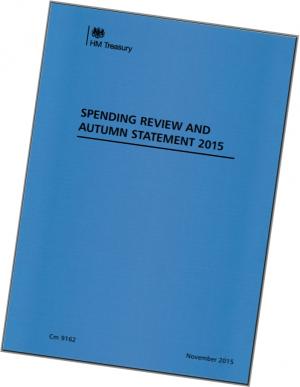



As many practitioners will have noted, the Chancellor's Autumn Statement promises a review of New Homes Bonus.
The Chancellor's "Blue Book" - Spending Review and Autumn Statement 2015 - states:
The government will also consult on reforms to the New Homes Bonus, including means of sharpening the incentive to reward communities for additional homes and reducing the length of payments from 6 years to 4 years. This will include a preferred option for savings of at least £800 million, which can be used for social care. Details of both reforms will be set out as part of the local government finance settlement consultation, which will include consideration of proposals to introduce a floor to ensure that no authority loses out disproportionately
Changes to New Homes Bonus can be made without primary legislation - the Bonus is simply part of the overall local government finance settlement. This enabled the goverment to introduce NHB and announce the NHB allocations with minimum fuss over the autumn/winter of 2010/11 following its consultation. We can expect something similar.
The goverment clearly has a preferred option in mind so we should not expect too much from any consultation process. Nevertheless, it is worth recalling that resistance from local authorities caused the government to do a U-turn on top-slicing 20% from New Homes Bonus to fund Local Economic Partnerships (except in London, where the top-slice was implemented). DCLG sources have told us that the consultation is "imminent" - meaning either the end of this week or next week.
The proposal to change NHB comes in a paragraph dealing with the costs of social care, suggesting that the government is as interested in casting around for a source of funding as it is in atempting to improve NHB.
In considering the impact of probable changes on local govenment finances, unitary authorities, London boroughs and the like are unlikely to be very resistant to the proposals: assuming the "savings" on NHB accrue to local authorities, the change might simply reduce the churning of money around winners and losers in the NHB process. Those that had hoped to be big winners would be disappointed, those that had expected to be big losers would be relieved. However, given that social care is a top tier function and 80% of NHB goes to districts, the impact on two-tier authorities is likely to be more significant, with districts, hitherto the overall winners from the NHB process, now losing out relative to the previous position. Effectively, a reduction in NHB will partially reverse a process that saw county council revenue reduced in order to provide more money to districts. As NHB constitutes a much bigger percentage of the overall budgets for districts - as noted in the NAO report on NHB - the adverse impacts could be significant. The reference in the announcement to a "floor" to mitigate such impacts probably reflects this.
What "sharpening the focus" might mean is open to conjecture. Previously the idea has been floated that NHB would not be payable on dwellings where planning approval was granted through a planning appeal. In a more disturbing scenario, "sharpening the focus" might mean reserving NHB for new-build alone. However, the inclusion of empty homes has often been cited by politicians as an example of its "fairness" - if you don't have much demand for new housing in your area, you can still earn the bonus through your existing housing by bringing empties back into use. It is also the only part of the NHB regime which was accepted to be working as an incentive in the National Audit Office's review of NHB. So it would seem perverse step to remove the "empty homes bonus".
It can safely be assumed, however, that there will be a reduction from 6 to 4 years in the period of the reward and this will affect the value attached to the work of empty homes practitioners.
Looking at the amount of money involved, recent increases in the volume of house-building and conversions have brought the value of a single year's NHB reward to £250million (2015-16) - and rising. So, of the target £800million, "savings" of £500million could be achieved by cutting the reward period from 6 to 4 years. That would leave £300 million to be saved by other means, which would be 6 years' worth of £50million for something or another. That is considerably less than the amount currently earned as "empty homes bonus", which is over £100million; it might equate to the amount currently gained through dwellings built after a developer has won an appeal.
In 2015-16, the government continued to provide £250million of additional finance for NHB whereas the original proposal had been for NHB to be revenue neutral by now. This may or may not factor in the calculation of savings as there had not been a long-term commitment for the £250million, nor does it affect the amount of NHB itself, only the source of NHB. Thus for this to figure in line with the announcement, the £250million would then have to be given to local authorities as additional money for social care.
We await the consultation with interest and a certain amount of concern.
